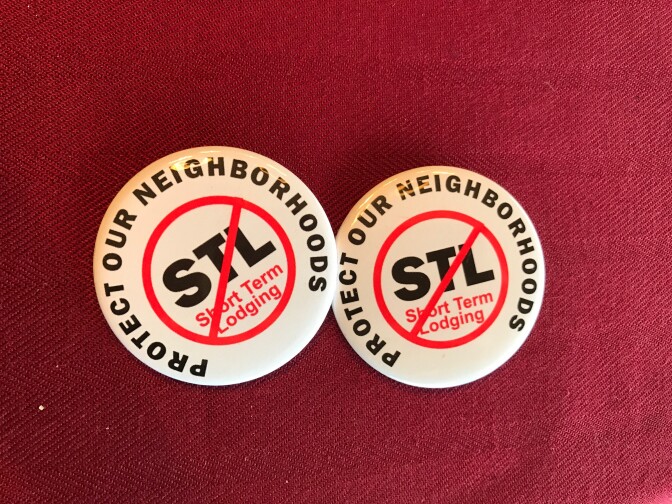This story is free to read because readers choose to support LAist. If you find value in independent local reporting, make a donation to power our newsroom today.
This archival content was originally written for and published on KPCC.org. Keep in mind that links and images may no longer work — and references may be outdated.
San Clemente considers relaxing restrictions on short-term rentals to settle lawsuit

Last year, the city of San Clemente passed tight restrictions on short-term rentals, like those offered through Airbnb. Now it appears, the city council is moving to roll back some of those rules.
The readjustment comes as cities across California and the nation struggle to balance the rights of property owners (namely those who rent their units to vacationers) with those of residents who complain that short-term rentals bring noise, trash and traffic to formerly quiet neighborhoods.
After hearing scores of those complaints following the rise of Airbnb, the San Clemente city council voted in 2016 to limit short term rentals to specific zones in the city. In other parts of the city, a 2-year grace period was set to allow owners of short-term rentaltime to recoup their investment before they’d be forced to shut down.
Not long after the new restrictions were passed, a group of local property owners filed a lawsuit against the city, alleging that the city failed to get a permit from the California Coastal Commission before making the changes, and said the regulations would unduly shut-down short-term rentals that had operated peacefully in the city for decades.
The city recently reached a negotiated settlement with the property owners contingent upon certain modifications to the existing rules, including an extended grace period and an expansion of the areas where units can operate as short-term rentals.
In Tuesday night's meeting, the city voted to recommend extending the two-year grace period to eight years for some property owners. Another recommendation: owners of multi-unit complexes that are rented short-term would no longer be required to live on the premises but would have to hire an on-site property manager.
These proposed changes would have to be approved by the planning commission and then sent back to city council for a final vote, which likely won’t happen for several months, said community development director Cecilia Gallardo-Daly.
At Tuesday’s meeting, more than a dozen residents asked the city to fight the lawsuit and keep the existing ordinance intact.
“We want you to fight this fight, we want you to spend this money,” said Bernie Wohlfarth. "The commercialization of our residential areas must stop.”
Several vacation rental owners also spoke to the council. Bill Christian from Pasadena said he and his wife bought a house in San Clemente six years ago with the intent to eventually retire there. They currently have a city permit to rent the house for vacation stays but would be forced to stop renting short-term next year under existing regulations.
“We bought with the idea that this revenue would allow us to hold onto this house until we’re able to make the move down here,” he said. Christian implored the city to allow short-term rental owners a 10-year amortization period.
In the end, however, the city council voted to recommend allowing an extended amortization period only for short-term rentals in medium- and high-density residential zones. Those in low-density residential zones, which make up more than half of the city’s 225 registered short-term rental units, would see their permits sunset in June 2018. It wasn't immediately unclear whether this would satisfy the demands of the legal settlement.
The city will ultimately need permission from the California Coastal Commission to implement its proposed restrictions on short-term rentals. The commission has told coastal cities that unduly harsh restrictions and outright bans on short-term rentals contradict its mission to ensure the availability of lower cost lodging for visitors.








